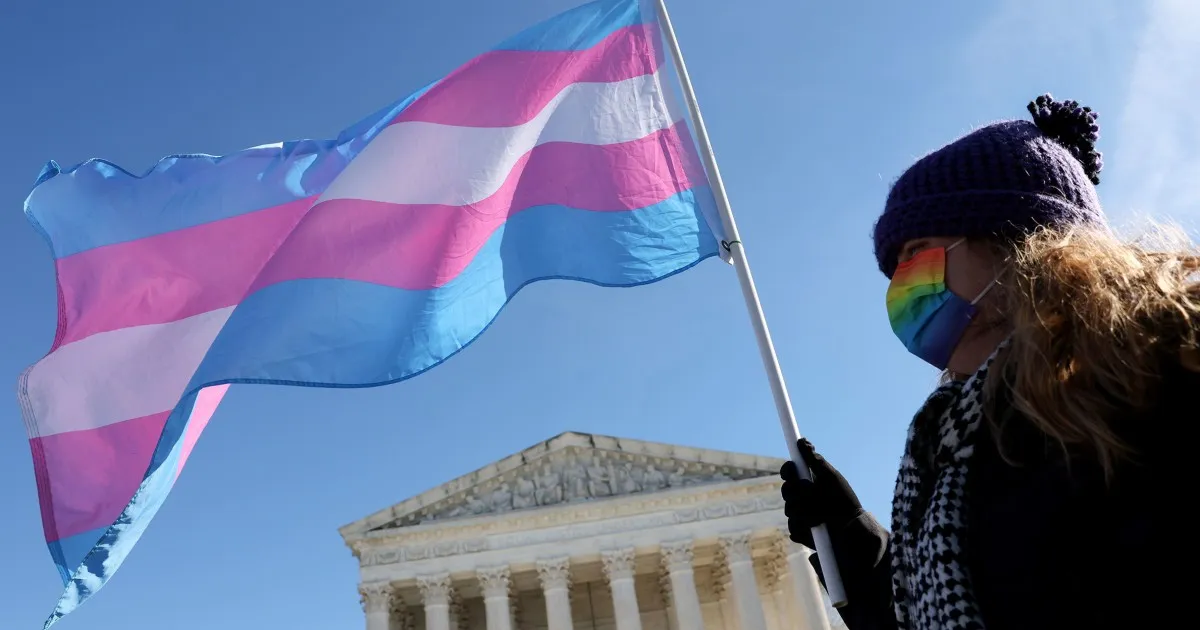
In a landmark decision, the Supreme Court upheld a controversial Tennessee law that restricts gender transition care for minors. This ruling, delivered on Wednesday, represents a significant setback for transgender rights advocates across the United States. The 6-3 decision is poised to influence similar laws in at least 24 other states that have enacted comparable restrictions, which prohibit gender transition surgery, puberty blockers, and hormone therapy for youth.
While this ruling solidifies the legality of such bans in Tennessee and other states with similar laws, it does not affect states that have not enacted these restrictions. Therefore, gender transition care will remain accessible in states without such legislation. The Supreme Court's decision underscores a division among justices along ideological lines, with the conservative majority siding with the law and the liberal dissenters arguing against it.
Chief Justice John Roberts, writing for the majority, asserted that the Tennessee law does not constitute a form of sex discrimination that would violate the 14th Amendment of the Constitution. He acknowledged the ongoing debates surrounding the safety and efficacy of medical treatments in this evolving field, stating, "The voices in these debates raise sincere concerns; the implications for all are profound." Roberts emphasized that the Equal Protection Clause does not provide a definitive resolution to these disputes.
Justice Sonia Sotomayor, in her dissenting opinion, argued that the law does discriminate based on both sex and transgender status and should be subjected to rigorous judicial scrutiny. She expressed her dismay, stating, "By retreating from meaningful judicial review exactly where it matters most, the court abandons transgender children and their families to political whims." Sotomayor's unusual move to read a summary of her opinion from the bench highlighted her concerns about the potentially dangerous consequences of this ruling.
The implications of the ruling have sparked strong reactions from various stakeholders. Chase Strangio, a lawyer with the American Civil Liberties Union (ACLU), described the decision as a "devastating loss for transgender people, our families, and everyone who cares about the Constitution." Conversely, Tennessee Attorney General Jonathan Skrmetti hailed the ruling as a victory for common sense over judicial activism, advocating for careful scrutiny of treatments based on scientific evidence rather than ideology.
This case was initiated by the administration of former President Joe Biden, along with transgender teens and their families. However, the Supreme Court ruling does not resolve all legal questions related to state bans. Notably, it did not address whether parents have the right to make health care decisions for their children, nor did it clarify if laws discriminating against transgender individuals require heightened scrutiny from judges. Three conservative justices contended that transgender individuals do not belong to a "suspect class," suggesting that laws targeting them should not receive heightened judicial scrutiny.
As the legal landscape surrounding transgender rights continues to evolve, other contentious issues, such as laws preventing transgender girls from participating in sports, are expected to come before the Supreme Court in the near future. The current ruling marks the most significant decision on transgender rights since the court ruled in 2020 that federal employment protections extend to gender identity and sexual orientation.
The case reached the Supreme Court after the 6th U.S. Circuit Court of Appeals in Cincinnati upheld the Tennessee law and a similar measure in Kentucky. Notably, a district court judge had previously blocked parts of the law but concluded that the plaintiffs lacked legal standing to challenge the surgery ban, which was not included in the Supreme Court's review.